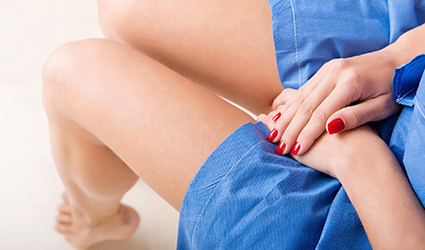Urine Leakage – Causes and Management
July 20, 2018
Source: Healyhline
 845
845

Urinary leakage or urinary incontinence happens when someone passes urine unintentionally, ranging from frequent small drops to a large flood of urine. The situation is both disturbing and embarrassing and creates various hygiene issue.
Urine leakage is a common problem, being more prevalent in women. The condition develops mostly in older age, although can happen to younger women too.
Our kidneys make urine, which is stored in the bladder which in turn is controlled by muscles. Storage of urine causes the bladder to expand like a balloon. The bladder outlet (the urethra) is controlled by the supporting muscles below the bladder (pelvic floor muscles) and normally kept closed. Complex messages from the brain tells the bladder how full it is, and when to release the urine.
There are several types of urine incontinence -
1. The most common type is stress incontinence, which occurs if the pressure in your bladder becomes too much for the bladder outlet to tolerate. Small amounts of urine can come out during coughing, laughing, sneezing, or exercising (jumping or running).
2. The second most common type is urge incontinence causes the bladder to become full beyond its capacity. In this condition, one feels the urgency to clear the bladder, and urine may leak before reaching the toilet.
The major causes of urinary continence include weak bladder muscles, physical damage to pelvic floor muscles, enlarged prostate gland and prostate/bladder cancer. Other factors include urinary tract infection, kidney/bladder stone, constipation, prostatitis and side effects of certain medications such as blood pressure drugs or sedatives.
The treatment plan for urine leakage might be just medications, exercise or even surgery, which is entirely dependent upon the causative factor.
There are several solutions of the problem that you yourself can manage –
1. Shed your extra pounds with good eating habits and specific pelvic floor exercise. Losing weight can release the extra pressure from your bladder.
2. You can use products able to absorb leaked urine, and thus save yourself from public embarrassment.
3. Avoid liquid intake 90 minutes before bed, at night.
4. Avoid food or drinks (like alcohol, teas and coffee) that stimulate your bladder.
By DduRead more on
- Things to Know before Buying Newborn Baby Incubators March 31, 2022
- Highly Resistant Food Poisoning Bug Responds to Antibiotics September 6, 2018
- Smartphone Based Diagnosis to Identify Mosquitoes Transmitting Infection September 5, 2018
- 3 Natural Plant Extracts Manufacturers on Drugdu.com September 4, 2018
- Shenzhen Chuanggan – Health Assessment Facility Supplier September 4, 2018
your submission has already been received.
OK
Subscribe
Please enter a valid Email address!
Submit
The most relevant industry news & insight will be sent to you every two weeks.



